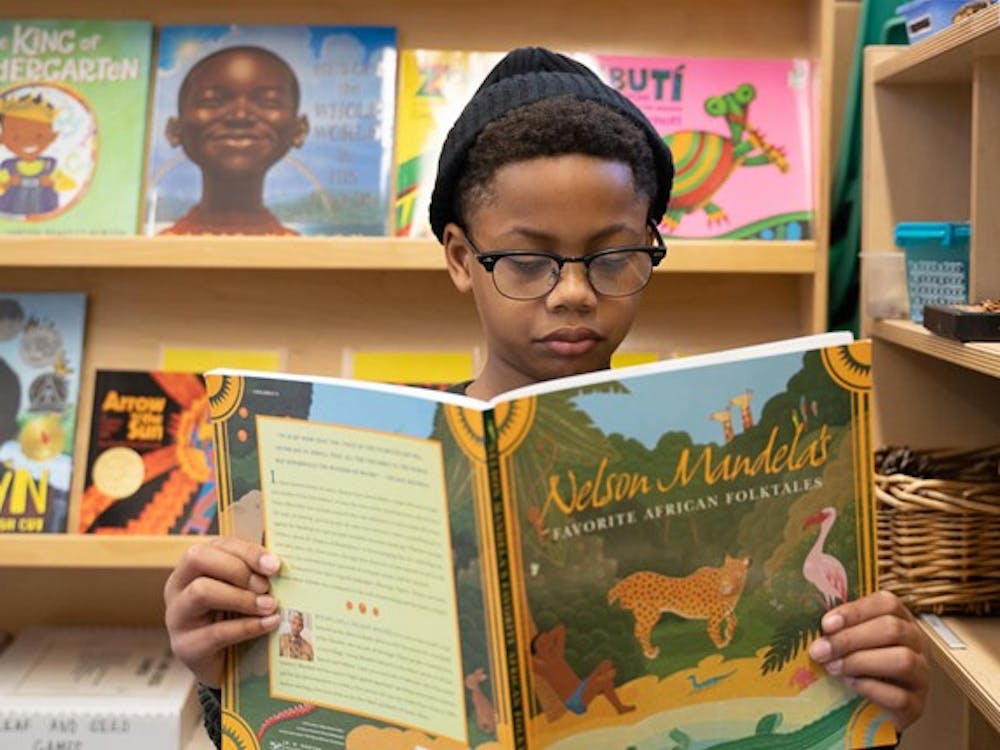In November 2019, Liberation Station’s Black Lit Library finally settled into its new host location at the Sarah P. Duke Gardens. Located in the Doris Duke Center Classroom inside the Gardens visitor center, this library intends to provide a safe reading space for children of color.
Liberation Station is a mobile children’s pop-up bookstore, offering over 500 thoughtfully curated titles centered on the representation of African American children with access to over 10,000 titles for distribution. Inspired by co-founder Victoria Scott-Miller’s difficult experience finding books that her own children of color could relate to, Liberation Station was created to glorify the black narrative and increase black representation in literature so that all children of color can find stories that accurately and positively reflect their own experiences.
In the eyes of Scott-Miller and co-founder Duane Miller, the installation of the Black Lit Library and its partnership with Duke represents a step toward accomplishing Liberation Station’s goals.
“With this library we wanted to go into unconventional spaces where children of color might not necessarily feel welcome,” Scott-Miller said. “A lot of children of color are intimidated by the idea of college, so we wanted to place our Black Lit Library in a space where they would unknowingly grow comfortable with the idea of college.”
The hope with this library is to ultimately encourage children of color to feel encouraged to pursue higher education and not to be afraid of learning.
Currently, the library has 19 different books that all celebrate the black narrative, each carefully selected by Liberation Station. But beyond the books in the library, the aspect that sets this library apart is its connection to the Duke Gardens.
“The Duke Gardens wants to be a place where everyone can see themselves belonging,” said Kavanah Anderson, education program coordinator at the Gardens. “Gardens are one of the more surprising places to learn and connect with nature.”
As such, the backdrop of the Duke Gardens provides a relaxing and relevant space for children and families to learn. Another notable aspect of the library is its emphasis on a classroom-like structure.
“I love the fact that the library is modeled after a classroom,” Scott-Miller said, “because it’s this aspect that allows students to learn not only about the garden space, but about themselves.”
Beyond being relevant to children of color, Scott-Miller believes the Black Lit Library is relevant to everyone.
“This library is showing us what we lack,” she said. “We should all be concerned with representation being normalized. … Society needs to reach a point where having black literature isn’t a surprise and is readily available.”
Anderson echoed Scott-Miller’s sentiment on the importance of representation.
“At the gardens we want to reflect the diversity of Durham,” she said. “The books in the library are a way to make sure every unique story is shared and celebrated.”
The Black Lit Library intends to be more than just a place to read — it wants to become a symbol of black advancement and inclusion in our society.
The Duke Gardens and Liberation Station welcomes all visitors to explore this library during its open classroom hours from 10 a.m. to 12 p.m. and encourages them to attend the library’s free winter programs and story times. The exact dates and times that these events will be offered are listed on the Duke Gardens website.
Get The Chronicle straight to your inbox
Signup for our weekly newsletter. Cancel at any time.

